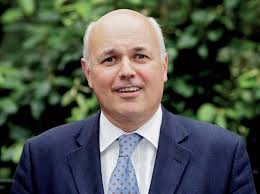Tory Pledge To Re-Impose British Gay Ban Seen As Unlikely
Reinstating the ban would risk British expulsion from the Council of Europe
SANTA BARBARA, CA–Iain Duncan Smith, who will become the next Defence Secretary if the Tory party wins forthcoming elections in Britain, announced today that the new government would re-impose the military’s gay ban if service chiefs vow that homosexual soldiers have undermined military performance. Despite Duncan Smith’s claim, however, experts on the British military believe that the permanent reinstatement of the gay ban is unlikely even if the Tory party prevails.
Academic observers and military leaders report that Britain’s decision to lift its gay ban appears not to have damaged the military. Professor Christopher Dandeker, Chair of the War Studies Department at Kings College London, says that “It is too early to say what the effects of lifting the ban have been, but the reports I have heard say that so far there are few problems.” Admiral James Burnell-Nugent, the Assistant Chief of the British Navy, commented that “Although some did not welcome the change of policy, it has not caused any great difficulty.” Dandeker offered his remarks in an interview with research staff of the Center for the Study of Sexual Minorities in the Military at the University of California, Santa Barbara and Burnell-Nugent’s comments appeared in an August 31 story in the Plymouth Western Morning News.
According to Michael Codner, Deputy Director of the Royal United Services Institute, even if a Tory government re-imposes the ban, the measure likely would be temporary. Codner told the UC Santa Barbara research staff that a generational change is occurring at the top of the British forces and that he expects the next cohort of military leaders to be more supportive of gay rights. Codner says that “if the Conservatives win the next election…[re-imposing the ban] might be an issue. However, if we’re talking six or seven years down the road, the service chiefs would not advise them to re-impose the ban at that point.”
Finally, academic, military, and political observers who were contacted by the UC Santa Barbara research staff said that the re-imposition of the ban on homosexual service members would be legally difficult given recent human rights measures that have been incorporated into British law. Observers agree that the reinstatement of the ban could be seen as a challenge to the European Court of Human Rights and thus lead to Britain’s expulsion from the Council of Europe.
Britain became the twenty third country to allow gays and lesbians to serve in the military when it lifted its gay ban in January, 2000. The policy change followed a September, 1999 ruling by the European Court of Human Rights that Britain’s ban violated the right to privacy guaranteed in Article 8 of the European Convention on Human Rights. Among the original members of NATO, only the United States and Turkey exclude gay and lesbian soldiers from the armed forces.
